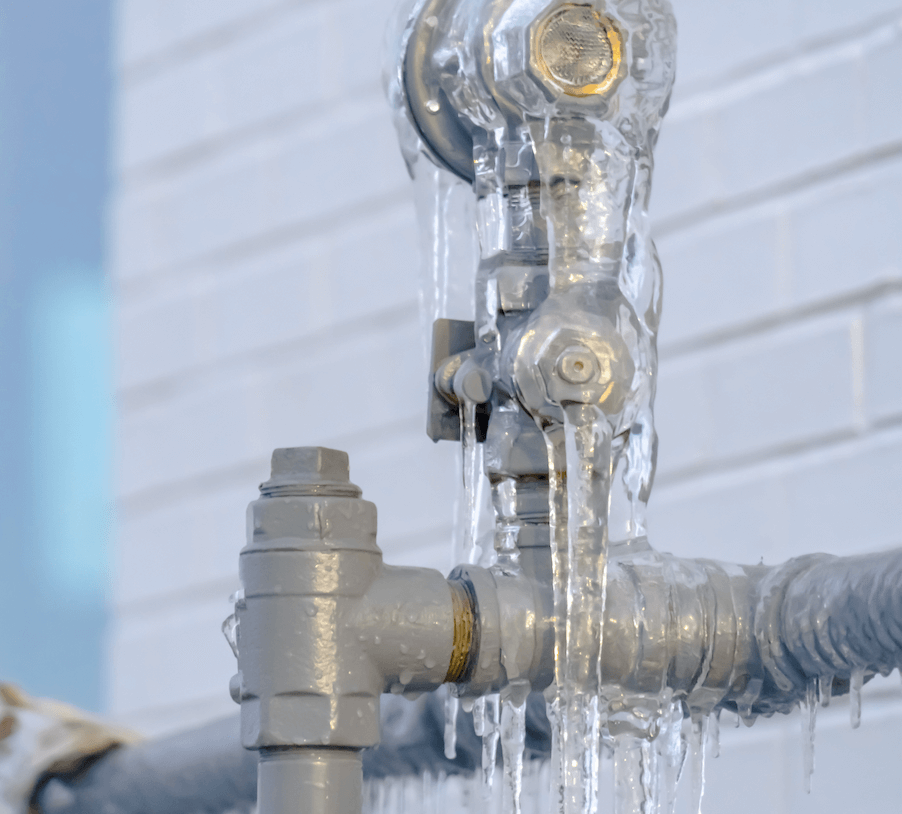Do you find yourself trying to find details around Preventing and dealing with frozen pipes?

Cold weather can damage your plumbing, particularly by freezing pipelines. Here's how to stop it from taking place and what to do if it does.
Introduction
As temperatures decline, the threat of icy pipelines increases, potentially bring about costly fixings and water damages. Comprehending just how to prevent frozen pipes is critical for homeowners in cool environments.
Avoidance Tips
Protecting susceptible pipes
Wrap pipes in insulation sleeves or utilize heat tape to secure them from freezing temperature levels. Concentrate on pipes in unheated or exterior areas of the home.
Heating strategies
Maintain interior rooms effectively heated up, particularly areas with plumbing. Open closet doors to enable cozy air to circulate around pipelines under sinks.
Just how to determine frozen pipelines
Look for reduced water circulation from taps, uncommon smells or noises from pipes, and noticeable frost on exposed pipelines.
Long-Term Solutions
Architectural modifications
Think about rerouting pipes far from outside walls or unheated areas. Include extra insulation to attics, cellars, and crawl spaces.
Upgrading insulation
Invest in top quality insulation for pipes, attics, and wall surfaces. Proper insulation helps maintain constant temperature levels and reduces the threat of icy pipes.
Securing Exterior Pipes
Garden hoses and outside taps
Disconnect and drain yard pipes prior to winter months. Install frost-proof faucets or cover outside taps with insulated caps.
Recognizing Frozen Pipes
What triggers pipes to ice up?
Pipelines ice up when exposed to temperatures listed below 32 ° F (0 ° C) for expanded durations. As water inside the pipes ices up, it broadens, taxing the pipeline wall surfaces and possibly causing them to break.
Risks and problems
Frozen pipes can cause water system interruptions, residential property damages, and pricey repairs. Burst pipes can flooding homes and cause considerable structural damages.
Signs of Frozen Piping
Recognizing icy pipelines early can prevent them from rupturing.
What to Do If Your Pipes Freeze
Immediate activities to take
If you presume frozen pipes, maintain faucets open to alleviate stress as the ice thaws. Use a hairdryer or towels soaked in hot water to thaw pipelines slowly.
Final thought
Protecting against frozen pipes calls for positive actions and quick reactions. By comprehending the causes, indications, and preventive measures, home owners can shield their pipes throughout winter.
Helpful Tips to Prevent Frozen Pipes this Winter
UNDERSTANDING THE BASICS: WHY PIPES FREEZE AND WHY IT’S A PROBLEM
Water freezing inside pipes is common during the winter months, but understanding why pipes freeze, and the potential problems it can cause is crucial in preventing such incidents. This section will delve into the basics of why pipes freeze and the associated problems that may arise.
THE SCIENCE BEHIND FROZEN PIPES
When water reaches freezing temperatures, it undergoes a physical transformation and solidifies into ice. This expansion of water as it freezes is the primary reason pipes can burst. As the water inside the pipe freezes, it expands, creating immense pressure on the walls. If the pressure becomes too great, the pipe can crack or rupture, leading to leaks and water damage.
FACTORS THAT CONTRIBUTE TO PIPE FREEZING
Low Temperatures: Extremely cold weather, especially below freezing, increases the risk of pipes freezing. Uninsulated or Poorly Insulated Pipes: Pipes located in unheated areas, such as basements, crawl spaces, or attics, are more prone to freezing. Insufficient insulation or lack of insulation altogether exacerbates the problem. Exterior Wall Exposure: Pipes running along exterior walls are susceptible to freezing as they encounter colder temperatures outside. Lack of Heating or Temperature Regulation: Inadequate heating or inconsistent temperature control in your home can contribute to frozen pipes. PROBLEMS CAUSED BY FROZEN PIPES
- Pipe Bursting: As mentioned earlier, the expansion of water as it freezes can cause pipes to burst, resulting in significant water damage.
- Water Damage: When pipes burst, it can lead to flooding and water damage to your property, including walls, ceilings, flooring, and personal belongings.
- Structural Damage: Prolonged exposure to water from burst pipes can compromise the structural integrity of your home, leading to costly repairs.
- Mold and Mildew Growth: Excess moisture from water damage can create a favorable environment for mold and mildew growth, posing health risks to occupants.
- Disrupted Water Supply: Frozen pipes can also result in a complete or partial loss of water supply until the issue is resolved.
WHY CERTAIN PIPES ARE MORE PRONE TO FREEZING
- Location: Pipes located in unheated or poorly insulated areas, such as basements, crawl spaces, attics, or exterior walls, are at higher risk of freezing.
- Exterior Pipes: Outdoor pipes, such as those used for irrigation or exposed plumbing, are particularly vulnerable to freezing as they are directly exposed to the elements.
- Supply Lines: Pipes that carry water from the main water supply into your home, including the main water line, are critical to protect as freezing in these lines can affect your entire plumbing system.
- Underground Pipes: Pipes buried underground, such as those connected to sprinkler systems or outdoor faucets, can be susceptible to freezing if not properly insulated.
https://busybusy.com/blog/helpful-tips-to-prevent-frozen-pipes-this-winter/

Do you enjoy reading about Preventing and dealing with frozen pipes? Make feedback down the page. We would be glad to see your responses about this content. Hoping that you visit us again in the near future. Sharing is good. You won't know, you may very well be doing someone a favor. I am grateful for your time. Please come by our site back soon.
Book A Service